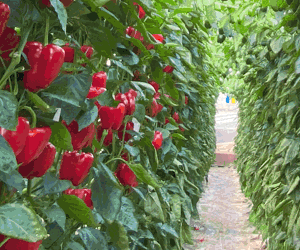India | Rice production
Leading rice experts and scientists call for more public-private partnerships and collaboration across the rice value chain
Fresh perspectives and innovative solutions are needed to increase rice production in a sustainable manner.
10/8/2013

Innovative ways of sustainably increasing rice production.

Against the backdrop of a growing world population, public and private institutions are requested to find innovative ways of sustainably increasing rice production in order to feed more people and keep rice affordable. How this can be approached is the main topic of an international conference in New Delhi, India, attended by more than 200 key stakeholders from rice producing countries across Asia Pacific.
The two-day ‘Rice Future Forum’ organized by Bayer CropScience aims at stimulating fresh perspectives on topics ranging from the importance of government policies in supporting the rice farming community, research and innovations, to promoting collaboration and sustainability across the rice value chain.
Harnessing innovation to address challenges in rice production in Asia
Rice is a key crop in Asia and a staple food for more than half of the world’s population, especially in Asia and Africa. With an expanding world population and a corresponding increase in food consumption, production needs to be raised. However, demand has grown faster than productivity increases in recent years. In addition, farmers today face numerous challenges, from the impact of weather fluctuations, labor shortage, to limited resources including arable land and water.
“Rice is life, literally, in Asia and through working very closely with the rice farmers, we have a deep understanding of their challenges and needs,” said Tobias Marchand, Head Region Asia Pacific, Bayer CropScience. “The backbone of rice farming in Asia is smallholder farmers. If we want to improve their livelihood and the economic situation at large, we need to focus on rice. In this context, we believe that helping farmers to sustainably increase their yield is of utmost importance.”
At the Rice Future Forum, Bayer CropScience presents its innovative and integrated portfolio of solutions based on advanced technologies. One of these examples is the ‘Much More Rice’ initiative – an integrated rice production program based on hybrid seeds, crop protection products, as well as consultancy and advisory services. Working closely with farmers to better understand their needs, the ‘Much More Rice’ solution is designed to improve rice yields and quality, while at the same time promoting sustainable agriculture. Originating in Vietnam, the ‘Much More Rice’ solution has seen resounding success and has spread to other countries in Asia, including China, Philippines and other parts of Southeast Asia. Results from more than a thousand trials proved an average increase in yield of about 20 percent, leading to a corresponding increase in farmer income.
Joining hands to promote sustainability across the rice value chain
However, boosting rice productivity and quality in a sustainable manner cannot be the lone effort of a single corporation. While the private sector continues to invest in science, products and services, wider challenges – such as insufficient education and training, political and economic instability, poor infrastructure, as well as loose legal frameworks – call for the collective efforts of many other multi-stakeholders.
Stressing the importance of collaboration between the public and private sectors and across the rice value chain, the event is co-hosted by the International Rice Research Institute (IRRI) and the Indian Council of Agricultural Research (ICAR). Besides a well-represented group of stakeholders in the audience, including government officials, policy makers, research institutions, academia, media, farmers and farmer associations from across the region, the event also features prominent speakers from companies and associations such as the Bill & Melinda Gates Foundation, the Deutsche Gesellschaft für Internationale Zusammenarbeit (GIZ), the Ministry of Agriculture from the Government of India, and Kellogg, among others.
“At Bayer CropScience, we believe that agricultural innovation can only benefit farmers and society at large if there is a coordinated and concerted effort between the public and private sectors to create an enabling environment. This means facilitating public-private partnerships to research, develop, commercialize and promote new solutions,” said Hartmut van Lengerich, Head of Cereals and Fungicides Strategy at Bayer CropScience. He continued: “We are therefore committed to working in strong collaboration with governments, the industry and non-governmental organizations to drive partnerships and help address the challenges facing rice farming.”
For example, Bayer CropScience has a long-standing partnership with the International Rice Research Institute (IRRI) to work together to expand the rice database and provide the impetus for breeding new high-yielding rice varieties, as well as enabling access to the many benefits of hybrid rice for farmers and rice communities.
The company is also one of the founding partners of the German Food Partnership (GFP), a cooperative network between the German and European private sector and public sector institutions in emerging and developing countries. GFP’s multi-stakeholder projects are based on innovative and holistic concepts and targeted towards enhancing food security and nutrition, as well as economic development. Key projects include looking at how to improve the health of local communities in Africa and Asia by enhancing the nutrition value of rice.